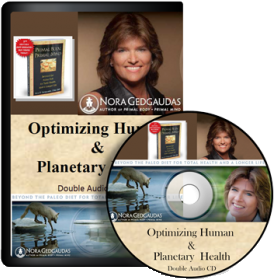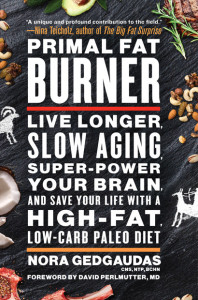 Q: For a little while a few years ago I did a diet called the Primal diet by Aajonus Vonderplanitz, which is a raw meat diet.
Q: For a little while a few years ago I did a diet called the Primal diet by Aajonus Vonderplanitz, which is a raw meat diet.
Anyway, I decided it wasn’t really a good diet for me overall, but one thing that stuck me from it was that he thinks that raw fat is really important, and much better for you than cooked fat. At that time I was ordering raw butter from California , (which was expensive and a hassle).
Now that I’m focusing on eating a lot of fat again, I’m just wondering if you think there’s anything too this.
Thanks again, Ann
A: Eating fat that is as unprocessed as possible and fresh (non-rancid) is, of course, important. OVER-cooking fats can have negative consequences with respect to rancidity and oxidative damage. (see information on oxidative stress here)
Minimally cooked fat is always best. That being said, saturated fats (coconut oil, tallow, lard, butter) tend to be fairly resistant to oxidation by comparison and have a high smoking point, so cooking meats, eggs, etc…as long as they are not OVER cooked should be OK.
I never ever cook with vegetable oils and only use olive oil in salad dressing or in a dish after it has been cooked. I may use a dash or two of sesame oil at the end of a cooking process for flavoring but minimize its time being heated. Polyunsaturates (i.e., safflower oil, flax oil, corn oil, sunflower seed oil…etc) and oils such as canola or soybean oil (all of which—unless specifically labeled as “organic” and “expeller pressed”–are partially hydrogenated as part of their deodorization process) should never, ever be used for cooking, in my opinion.




Great stuff, Nora.
Just picked up a copy of PBPM, and am about 100 pages in—an excellent, excellent resource so far. Please keep up the great work!
Mike